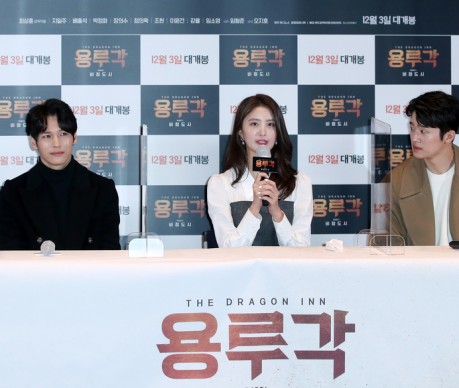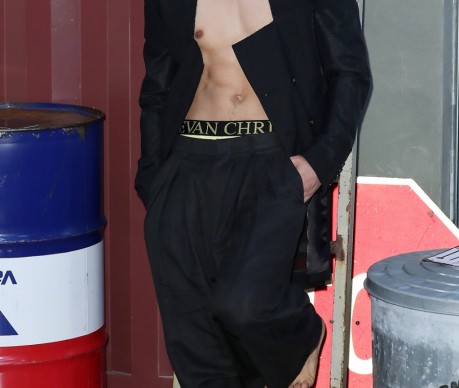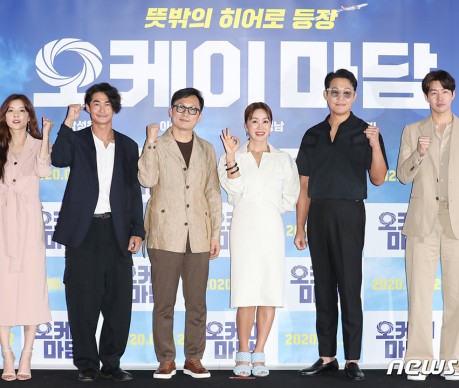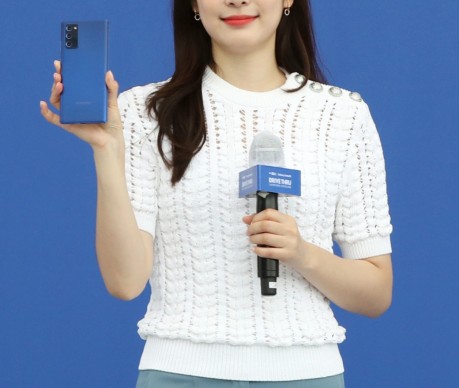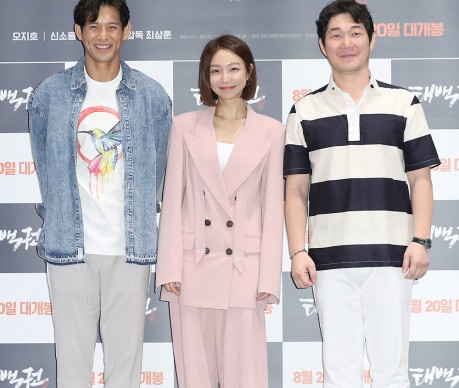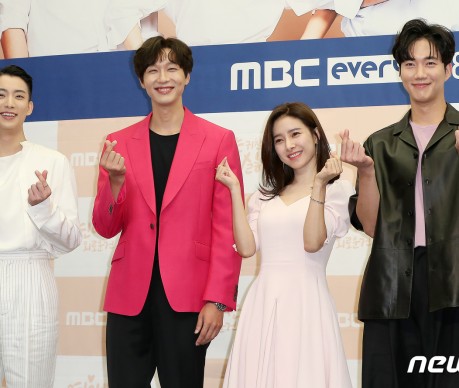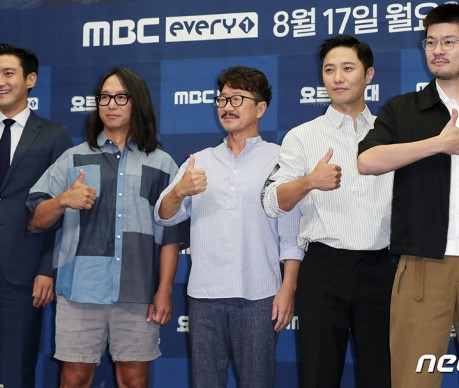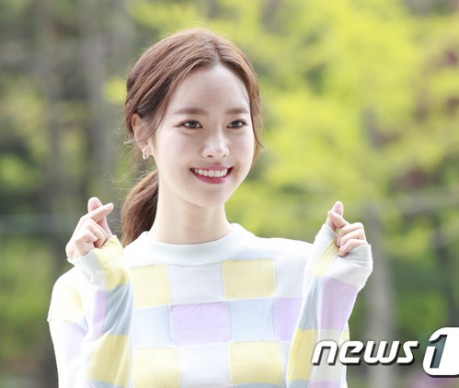'Madonna' Director Shin Su Won Talks About The Challenges Of Creating Socially Provoking Films [EXCLUSIVE INTERVIEW]
KDramaStars: "Madonna" is a female-centric film that provides a powerful critique of Korea's social hierarchy and views about women's sexuality. What were some of the challenges in making the film?
Shin Su Won: I think one of the hardest things [about Madonna] for me, where the scenes relating to Mina. There were very intense, sexual scenes that she had to film, so it was something that I was pretty nervous and worried about that. I put a lot of thought into making the process as smooth as possible.
I actually had the actress who played Mina meet with the guy who was her partner in those intense scenes. That way, they could at least become more comfortable with one another. I remember that being a hard shoot.
From an investor’s point of view, because this film deals with the discrepancies within the social system, it was a bit hard to get funding. The relieving aspect was that there were a lot of people who were rooting for the film and wanted it to be made. Despite a small budget, we were able to achieve that.
KDramaStars: How long did it take to create the script and complete filming? What inspired the script of "Madonna?"
Shin Su Won: It took about a year to film. This film originated because I was interested in VIP hospital wings. I guess these are specific to Korea. These are hospital wings who take in patients who are in positions of power. I was interested in how these types of people deal with matters of life or death, specifically someone who needed a heart transplant, in order to survive.
I was thinking of who I would conceive of as the donor, to give this person a heart transplant. That’s when I thought of this brain dead, unconscious, prostitute. When she entered into the story, the focus of the screenplay started to shift towards two women - the nurse’s aide, Hye Rim and then Madonna.
I was really drawn to the title of “Madonna,” because as you know, the iconic singer, Madonna, is a sex symbol. But the name originated from Saint Mary. Originally, this name was a religious image. I was drawn to this duality of the images. That’s why I renamed this film from “VIP Hospital Wing” to “Madonna.”
KDramaStars: "Madonna" provides a harsh critique of VIP hospital services that have only been touched upon by projects like the drama, "Yong Pal." What are your thoughts on this practice? Did you receive a positive response from domestic audiences, in support of your critique?
Shin Su Won: As you know it’s not a comfortable film or a comedy, in any sense of the word. Some of the younger audiences that I met and talked to, they said they couldn’t get up from their seats, after watching the movie. It’s such a harrowing film. There were multiple responses, but most [audience members] said that they were just sitting in a daze. Some people would just keep crying.
Another thing that resonated with Korean audiences was the disparity between the rich and the poor. It’s becoming more and more of an issue, in Korea. You see these people of power, who do not respect human life. I feel that also struck a chord and people started thinking about that, as well.
KDramaStars: What was the casting process of the film? How did you select Seo Young Hee, Kwon So Hyun, and Byun Yo Han for their roles?
Shin Su Won: First, I will talk about the casting process of Hye Rim, who was played by the wonderful actress, Seo Young Hee. I first saw her in the films, “The Accidental Detective” and also, “The Chaser.” I had kept my eye on her, for some time. As you know, the role of Hye Rim doesn’t have a lot of lines. It was crucial for the actress who portrayed her to be able to show emotions through facial expressions. For that role, I knew that I needed an experienced actress.
I gave her the script and I felt that she could have declined because the role of Mi Na was more visible, in the film. So, she could have declined, but she told me that she loved the screenplay, as a whole and agreed to do that. It could have been very difficult, on-set, to maintain the set of emotions and feelings. But I feel that she did a good job.
For the casting of the role of Mi Na, I looking for a chubbier actress, because the character was a bulimic person. I wanted that character to embody a type of innocence, but also danger. Initially, I had an actress in mind. I approached her, but she told me that she was going to lose weight and she didn’t want to do the part. I’m sure you’re aware, but in Korea, you have to be more skinny to be cast. It was very difficult to find an actress who was a bit chubby.
After a few approaches fell through, I realized that I needed to cast a newcomer. For this, I thought that we might have to hold auditions for chubbier actresses. Then, I started watching a lot of short films that were released at the time. That’s when I saw Kwon So Hyun, in a 20-minute short film. She fit the body type, so I thought she might work. She came to the audition, with no makeup on and I immediately sensed a sort of innocence about her.
In the beginning, when I first met her, I had my screenplay in my bag and I thought that if I didn’t like her, I would not give her one of my scripts. But I took a liking to her and she said she would accept the role. I still had concerns about her acting ability because she came from a musical theater background. In order to insure that she would do a good job, on-set, we took her through a month of rehearsals with all of the other actors. As that month passed by, I could see her embodying more of the character of Mi Na. I was very grateful for that.
KDramaStars: From an outsider's perspective, Korean cinema appears to be male dominated. What are some of the difficulties faced by female filmmakers in Korea?
Shin Su Won: Korea is still very much a patriarchal society. With male directors, a lot of their projects are male-centric. These films actually get more funding. I recently spoke with an actress who expressed concerns because there really aren’t that many films that feature leading women as the main characters, they are always the wives or girlfriends of the male [protagonist]. In my film, “Madonna,” the two leading characters are women. I would say that is not commonplace in Korean cinema today. As I already said, it is very hard to get funding, unless it is a genre like action or a thriller.
KDramaStars: What influenced your decision to pursue directing, after working as a teacher?
Shin Su Won: In the beginning, I didn’t have thoughts of going into filmmaking. When I was teaching, I was writing my own novel. I thought that I didn’t have time to write my only works. So, I decided to go to grad school, to focus on the writing process. At the time, there was the Han-Guk Yesul Jonghap or Korea National University of the Arts, they had open spots for screenwriting. I thought screenwriting isn’t too different from writing a novel, so I applied. The teacher at that school saw my work and were gracious enough to accept me to the school.
I think that if my teachers knew that I went into this [screenwriting] with the intentions of becoming a novelist, they wouldn’t have accepted me. They weren’t aware of that, at first. The transition came when I needed to take a screenplay I wrote and make it into a short film. It was a 10-minute short, but the process of making the film was so much fun. We had a small screening, in one of our classrooms, it wasn’t great, but it was so much fun to see the response of the audience.
It was a great experience. When you are writing, it can be a very solitary thing, with filmmaking, you are creating a living and breathing thing. That for me was almost like a drug. After that, I decided to go into filmmaking.
KDramaStars: Can you please share about your future projects? Will you continue to direct films that provide social commentary?
Shin Su Won: When I am making my films, I am not consciously working on delivering a social message. In an ideal world, I wouldn’t actually have to think about making a film that was a social commentary. But I those things do interest me. I know that films can’t change the world, but I feel that they do provide the opportunity to get a look at people who are on the outskirts of society. If you are critical of issues like that or the social systems, your films can’t be funded. That’s not a conscious thing. In the future, I would like to weave a very personal story, into a film. My next film, that I am currently working on, is about a forest. We are going to start filming, next summer.
